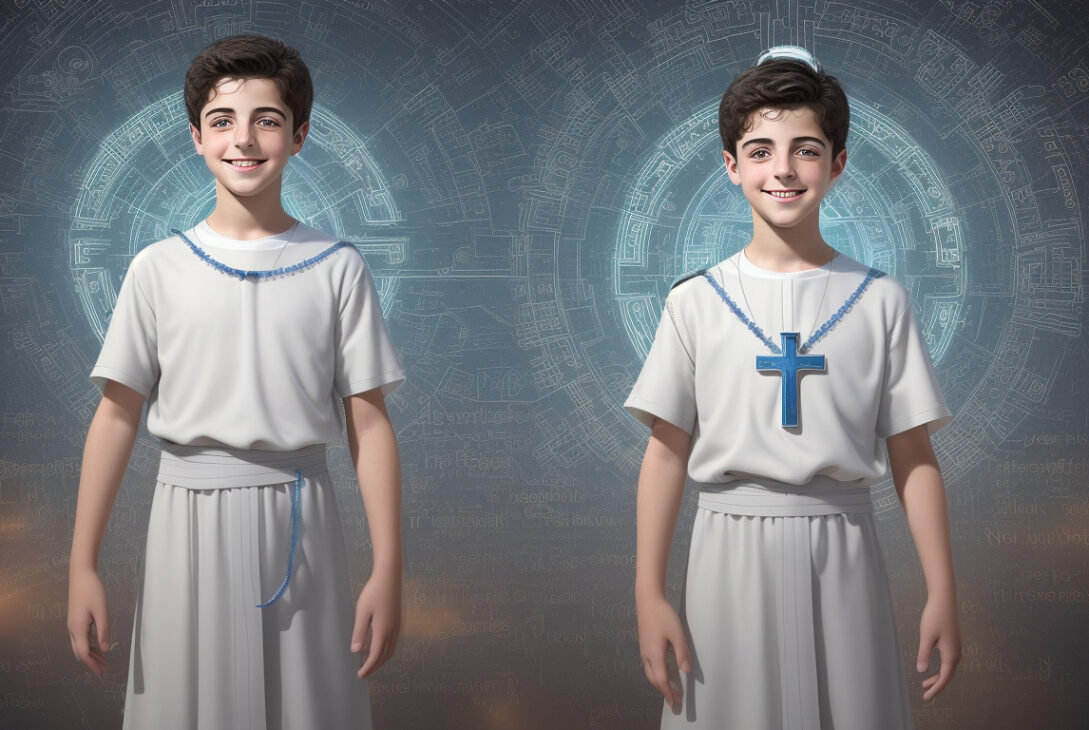Carlo Acutis stands on the brink of a historic milestone: becoming the first millennial saint recognized by the Catholic Church. His remarkable story, interwoven with faith, technology, and a series of miracles, has captured the hearts of believers around the world, inspiring a new generation to embrace spirituality in the digital age.
Born in 1991 in Milan, Italy, Carlo Acutis was an ordinary teenager with an extraordinary devotion to the Eucharist. Despite his youth, he used his passion and technical acumen to document and share Eucharistic miracles from across the globe through a website he created. This pioneering use of the internet earned him the informal title “patron of the internet,” a testament to how he bridged ancient faith with modern platforms.
Carlo’s life was tragically cut short at age 15 in 2006 due to leukemia, yet his influence only grew after his passing. On October 10, 2020, during a live-streamed Mass in Assisi, Italy, he was declared “Blessed” by the Church—a significant step in the path to sainthood. His beatification drew unprecedented attention, partly fueled by his relatable style, dressing in sweatshirts and sneakers, and a faith accessible to many young people today.
Central to Carlo’s journey to sainthood is the recognition of miracles attributed to his intercession. According to church tradition, two verified miracles are typically required after beatification for canonization, except in cases of martyrdom or papal dispensation. The first officially recognized miracle connected to Carlo took place in Brazil, illustrating not just his spiritual reach but also the powerful role of relics in Catholic devotion.
In the city of Campo Grande, Brazil, the story began when a 4-year-old boy named Matheus was suffering from a severe pancreatic malformation. His condition left him weak and unable to digest food properly, with doctors predicting he would not survive past five years old without a transplant—a procedure he was too frail to undergo.
During a parish celebration on October 12—coinciding with the feast day of Our Lady of Aparecida, Brazil’s patron saint—Matheus and his mother visited St. Sebastian’s Church. There, the boy kissed a cloth relic belonging to Carlo Acutis and fervently prayed for relief. Witnesses recall Matheus declaring, “Stop vomiting!” in a moment filled with faith and hope.
Astonishingly, after that Mass, Matheus quickly gained strength and could eat normally for the first time in his life without vomiting. His pancreas showed normal morphology on ultrasound tests, baffling doctors who later referred to it as “textbook perfect,” with no surgical scars present. The sudden and complete healing defied medical explanation and was attributed to Carlo’s intercession.
This miracle was carefully investigated by local church authorities and validated by medical experts, ultimately reaching the Vatican in 2019. The rigorous verification process underscores the gravity with which the Church approaches claims of divine intervention.
Carlo’s legacy of miracles does not end there. Another compelling case involves Gabriel Terron, a young man who survived multiple heart attacks and seemed destined for a vegetative state. His recovery, attributed by many to Carlo’s prayers, awaits formal Vatican review.
The devotion to Blessed Carlo Acutis has grown exponentially, with pilgrims from across Brazil and beyond flocking to churches housing his relics. Priests and even bishops now carry images of Carlo, and his story is frequently cited by Pope Francis, who named him “a witness of Christ for younger generations” in his apostolic exhortation, Christus vivit.
Carlo Acutis’s journey from a tech-savvy teenager to a beacon of modern sanctity embodies a unique fusion of faith and contemporary life. His story resonates deeply, especially with youth, demonstrating that holiness can be lived authentically in any era. Through his miraculous legacy, Carlo not only opens the path to sainthood but also paves the way for new expressions of spirituality in the 21st century—a true reflection of a millennial saint for all times.










